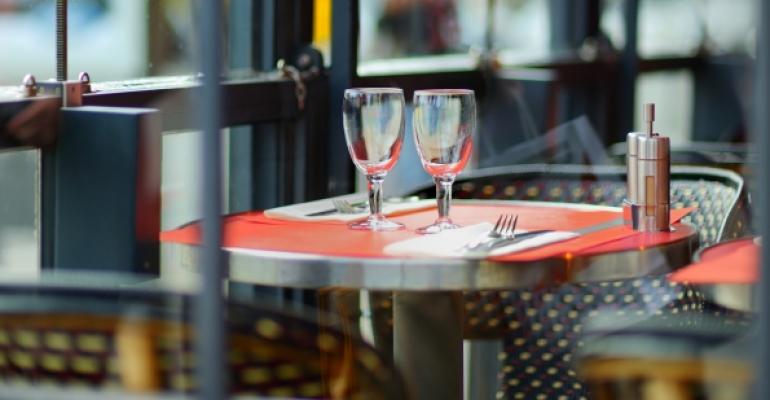
Casual dining chains are weaning themselves off of their discount addiction.
With consumers apparently more willing to eat out and spend a little more money, casual dining restaurants in particular have started eliminating discounts from their marketing plans.
Darden Restaurants Inc., Bob Evans Farms, Red Lobster, Famous Dave’s and Logan’s Roadhouse have all worked to shift their business models away from buy one, get one offers, coupons and other low-cost strategies. Executives at these restaurants are choosing higher prices over higher traffic, at least for now.

This is a big bet on the consumer, an assumption on the part of executives that consumers are feeling better and more willing to spend. “We are starting to see a little healthier consumer,” Darden CEO Gene Lee said on the company’s conference call today, as I noted in my earnings story this morning. That healthier consumer “is allowing us to grow check average and overall profitability.”
Discounts have always been a questionable business strategy in the casual dining world, but many executives felt they had little choice in an environment in which consumers just weren’t all that eager to spend much money.
Casual dining began to struggle before the recession hit in 2008, and in the months since then the sector has badly lagged behind quick-service restaurants in both sales and traffic. According to the MillerPulse index, for instance, casual dining restaurants have lagged behind QSRs every month for more than three years in both sales and traffic until December.
Coupons littered mailboxes. Email offers filled inboxes. Buy-one, get-one offers became common. Chains offered endless shrimp, unlimited appetizers and bottomless bowls.
Such offers came even though many executives decried their use. Discounts put significant pressure on profits. They train consumers to spend less, and make it difficult for chains to push premium products that have higher margins. And, done poorly, they can lure diners that are different from a chain’s typical customer base — driving away loyal users.
Sales improvement at many concepts might be giving executives more confidence that they can eliminate discounts from their menus. Some of that improvement is due to easier comparisons and better weather. But a lot is due to lower gas prices, higher employment and improving consumer sentiment.
So many chains have decided that now is a good time to break this discounting habit. Some are going cold turkey. But the smarter ones are devising strategies to provide customers with value options that don’t cheapen the experience.
 These moves are proving to be difficult medicine to swallow. Olive Garden, Darden’s flagship concept, reported same-store sales growth each month of its recent quarter but saw traffic fall every month, too, including 3 percent in February.
These moves are proving to be difficult medicine to swallow. Olive Garden, Darden’s flagship concept, reported same-store sales growth each month of its recent quarter but saw traffic fall every month, too, including 3 percent in February.
Logan’s Roadhouse, the struggling Nashvillle-based chain, has had same-store sales fall 0.2 percent in the first half of its 2015 fiscal year, ending Feb. 1. Average check increased by 5.4 percent. But traffic fell by 5.5 percent.
At Minneapolis-based Famous Dave’s, same-store sales fell 4.9 percent last year, which the company blamed in part on its elimination of “heavy discounts.” “In my 47 years in the restaurant business, relying on a strategic discounting program has not proven to be a long-term, winning strategy,” Famous Dave’s of America Inc. CEO Ed Rensi said back in November.
Not every casual dining chain is breaking the discounting habit. And many QSRs still need to push price points. And, one wonders how long executives will tolerate traffic declines or even sales declines, particularly at chains where investors are clamoring for improvement. Years of discounting might prove more difficult for chains to recover from than executives think.
But, for now at least, the long discounting era in the casual dining restaurant business is coming to an end.




